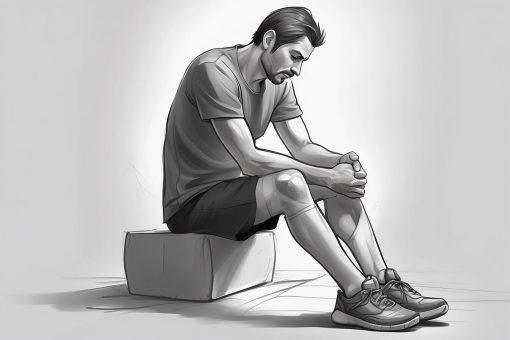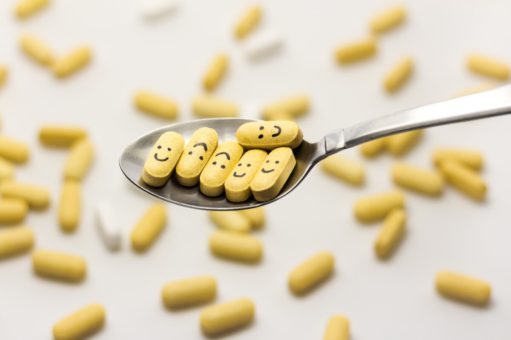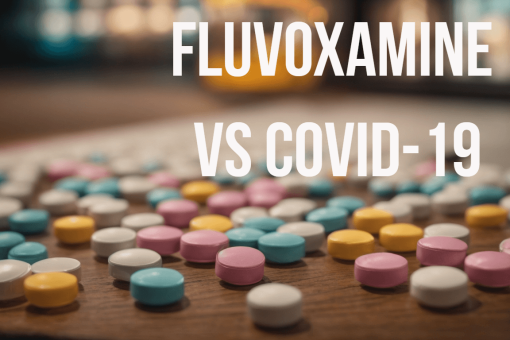Why one-third of antidepressants are prescribed for other purposes

It was when Michael Briggs became a father that he decided to somehow control his ulcerative colitis. He would have part or all of his colon removed. Trained as a scientist and manager of a physics lab at the University of New Hampshire, he began reading medical research papers, looking for anything that might help him.
He knew that just as there was no single cause of inflammatory bowel disease (IBD), which causes intestinal pain, bleeding, and diarrhea, there was no single cure. He had already been taking a drug called Remicade (infliximab) for more than five years. It blocks the action of an inflammatory protein called tumor necrosis factor alpha (TNF alpha), which prevents the immune system from attacking the colon wall. The problem is that such drugs have serious side effects. Another problem, according to Briggs, is that as the patient’s immune system produces antibodies to the drug, it becomes ineffective.
Briggs knew he couldn’t keep using infliximab forever, and he was tired of dealing with the flare-up and remission cycles of his disease. after a nasty flare-up in the summer of 2013, he pored over 150 He pored over more than 150 papers on anti-inflammatory supplements, diet, and TNF blockers in his search for a cure.
Eventually he came across a study suggesting that an antidepressant called bupropion could help Crohn’s disease, another type of IBD in which the immune system attacks the intestinal lining. Studies with mice had shown that bupropion did not block the action of inflammatory proteins, but rather reduced the production of those proteins in the first place.
Briggs decided to give it a try.
Off-label
It is not uncommon for drugs to be prescribed under names of diseases that have not been officially approved for treatment. It is certainly not illegal, nor is it that difficult. Doctors around the world are allowed to prescribe off-label, and antidepressants are used for several conditions and diseases other than depression, including migraine headaches, hot flashes, attention deficit hyperactivity disorder (ADHD), and digestive disorders.
Off-label use means that potentially more effective treatments may be available in the medical setting. But it also means that the drug has not been tested in clinical trials or approved by regulatory authorities for these other uses. In the case of antidepressants, a potential downside is that physicians are unaware of the possible risks associated with the use of these drugs by people who are not depressed. Side effects of antidepressants include insomnia, decreased libido, and suicidal thoughts, knowledge gained from clinical trials with depressed patients. One could assume that the same risks are present in depressed and nondepressed patients, but this too has not yet been extensively tested.
However, bupropion has been around for more than 30 years and has a fairly good safety record. Still, few, except for assertive patients like Briggs, know that bupropion has the potential to lead a double life as an IBD treatment.
Within two weeks of starting bupropion, Briggs experienced a dramatic decrease in bleeding and felt few side effects. Gradually, the bleeding stopped. After controlling his disease with bupropion, he added various anti-inflammatory supplements and dietary changes to prevent his ulcerative colitis from flaring up again; since starting his “protocol” in 2013, he has remained in remission and continues to research the molecular mechanisms behind colitis.
He writes about his research and experiences to spread the word to others suffering from colitis. And, like a good researcher, he discloses his interests: “In research papers, it is common for authors to disclose any vested interests that might bias their views. In this sense, I want to make it clear that I have a vested interest.
First-hand experience
I must also express my interest: I too have colitis and followed the protocol after Briggs published it. I initially asked my gastroenterologist if I could try bupropion, but he dismissed the idea as a mental health issue. (According to Briggs, it is common for patients to obtain bupropion from primary care physicians, not specialists.) My psychiatrist was understandably cautious. I was already taking another antidepressant for anxiety and sleep problems, and he wasn’t confident in administering a drug that could cause insomnia. However, she was willing to give it a try because if the side effects of bupropion were intolerable, she could stop taking it immediately.
Bupropion was not a miracle cure for me, but after taking it, I no longer had to go to the bathroom as many times each day. As for side effects, I did not experience insomnia, but I did feel jittery for a week after taking it. As Briggs expected, that side effect subsided quickly. He says that of the IBD patients who inquired about bupropion, 80 percent were completely successful, and the remaining 20 percent showed improvement.
I am still taking bupropion today. My colitis symptoms have improved and my psychiatrist believes that bupropion is complementary to the other antidepressants I take because different antidepressants have different chemical transmitters in the brain called neurotransmitters. Bupropion increases dopamine and norepinephrine, while the other, escitalopram, is a selective serotonin reuptake inhibitor (SSRI) and increases serotonin. All of these seem to reduce my anxiety.
It seems surprising that antidepressants work for other illnesses, but maybe it’s time to stop thinking of these drugs as ‘antidepressants’ and admit that they are all-purpose drugs, not one-size-fits-all. All antidepressants are effective in relieving depression, but they do so in different ways, acting on different chemical transmitters in the brain and nervous system. Since the same neurotransmitters are responsible for controlling what happens in other organs and systems, it is not surprising that antidepressants have other effects. Perhaps that is why almost one-third of antidepressant prescriptions are off-label.
However, due to the nature of drug regulation and manufacturing methods, there are many obstacles to understanding all of a drug’s potential. And that means that patients may be missing out on potentially beneficial treatments.
A little bit of luck
It was Richard Kast, an unorthodox Vermont psychiatrist, who convinced Briggs to try bupropion. Kast made his living exploring new uses for old drugs, often conducting research in his spare time while running his clinic.
In 1999, Kast began treating depression in women with Crohn’s disease. When she switched from fluoxetine to bupropion, an antidepressant that increases the availability of serotonin, something completely unexpected happened. Her Crohn’s disease went into remission.
Casto had been taking a strong anti-inflammatory drug, but had chronic abdominal pain, bloody stools, and frequent diarrhea until he started bupropion. Casto increased his bupropion dose and his Crohn’s disease symptoms further decreased until he had normal bowel movements once a day and no pain. When he stopped taking bupropion, the bloody stools and abdominal pain sometimes returned until he started taking it again.
In 2001, Kast and neuroscientist Eric Altshuler published this case in a scientific journal, along with another case in which a middle-aged man who had suffered from Crohn’s disease for 20 years went into remission when he started taking bupropion. He also published several papers exploring the mechanism of how bupropion works in the treatment of IBD. It seemed promising, but did not seem to attract the interest or funding to conduct clinical trials.
Science is full of stories of this sort. Case studies yielded intriguing results, and a small-scale study in mice looked promising, but then fizzled. To truly vet a treatment, it would take many phases of randomized, double-blind clinical trials involving hundreds of patients, which would cost millions of dollars. For a drug like bupropion, which has already completed clinical trials for one indication and may not be profitable any longer, there is little incentive for pharmaceutical companies to invest in additional large-scale clinical trials.
A cautionary tale
In the late 1990s, depressed breast cancer survivors began reporting anecdotal evidence that prescribed antidepressants also helped with menopausal hot flashes. Women with a history of breast cancer were advised not to receive hormone replacement therapy (HRT) during menopause because it could increase the risk of breast cancer recurrence.
In 2003, however, the results of the Women’s Health Initiative study in the U.S. and the Million Women Study in the U.K. suggested that hormone therapy may increase the risk of cancer and stroke, alarming both physicians and patients. More than a decade later, hormone therapy is making a comeback for some women as researchers have concluded that the risks to middle-aged women just entering menopause were overstated by these studies. However, once the studies were published, more women became interested in avoiding hormones, and researchers began to seriously test the effectiveness of antidepressants for hot flashes.
Hadyn Joffe has been involved in a number of such studies, including a three-arm study comparing the effects of placebo, low-dose estrogen, and antidepressants on hot flashes in a project called MsFLASH. Both estrogen and antidepressants were superior to placebo in relieving hot flashes symptoms. There may have been a slight advantage for estrogen, but it was not a meaningful difference, Joffee says.
In 2013, the U.S. Food and Drug Administration (FDA) approved Brisdelle, a low-dose version of an antidepressant called paroxetine. However, this decision was made despite a recommendation from an FDA advisory committee against its approval.
The Reproductive Health Drugs Advisory Committee’s disapproval had nothing to do with safety. According to Joffi, there are many clinical trials showing the safety of antidepressants, but some may not agree that the data are applicable to women who are not depressed. However, the clinical trials of Brisdelle did not show any further adverse effects compared to placebo.
Instead, the committee’s recommendations were about efficacy. Ideally, for a drug to be approved by regulatory authorities, studies should show that it is both safe and more effective than placebo.
An analysis of a number of depression studies found that more than 80% of the effects of antidepressants were due to placebo response. In the Brisdell study, 48% of participants had at least a 50% reduction in hot flash symptoms. Sounds good, but 36 percent of the placebo group showed a 50 percent reduction in symptoms. Not a huge difference.
The results are not so different, says Julia Johnson, a gynecologist at the University of Massachusetts. She was chair of the Reproductive Health Drugs Advisory Committee when Brisdelle was approved. She adds that off-label use alone is not evidence that a drug should be approved by the FDA for a new indication. There must be “very strong data that the benefits outweigh the risks.
So why was Brisdelle approved? It boils down to the fact that even one non-hormonal treatment for hot flashes is better than none. Since then, however, off-label use of other antidepressants for menopausal women remains common.
Last year, when Susan Greer’s doctor wanted to discontinue estrogen, he recommended an antidepressant, though not Brisdelle. Instead, Greer, a 60-year-old New Jersey resident, takes venlafaxine, a type of serotonin and norepinephrine reuptake inhibitor. She has experienced no side effects.
Says she, “I still have hot flashes, but they have lessened.” I didn’t think antidepressants would help. There were a few days when I didn’t have my medication, and my hot flashes increased considerably,” he said.
The FDA approval has not yet translated into huge profits for the makers of Blis-Del, as doctors have been able to prescribe other antidepressants off-label to alleviate hot flash symptoms. “Insurance companies may be more likely to pay for generic antidepressants than for new brand-name drugs (generic paroxetine costs $10 per month, compared with $200 per month for Brisdelle). Therefore, there is less incentive for drug companies to pay for clinical trials because they are less likely to profit from them. So new ways to explore different uses for approved prescription drugs are needed.
Building the evidence base
For Jenna Wong, who studies off-label use of antidepressants at McGill University in Montreal, the future does not necessarily lie in dragging old drugs back into the regulatory approval process. Rather, she believes that physicians need to track more indications for drugs in the first place.
In many parts of the world, prescriptions for antidepressants do not state whether they are actually used for depression. France is one of the few countries that has developed a system for evaluating drug indications by requiring pharmaceutical companies to track off-label use. There, companies have a three-year time limit to evaluate unapproved uses of their drugs and obtain additional licenses. However, a similar system is difficult to establish on a large scale.
Wong is able to track off-label use because her lab’s principal investigator has worked with Quebec physicians to build a database that includes specific indications for prescribing. According to Wong, there is a need for an accessible database that compiles evidence against off-label use.
Not that off-label use is bad, she says, but that if physicians find off-label use, they should be able to back it up with sufficient evidence. She explains, “When you talk to a lot of physicians, they don’t know that certain uses aren’t approved.” They also often don’t know which uses are based on sufficient evidence. Off-label uses without evidence are what we are concerned about.”
However, finding evidence can be time-consuming and can lead to contradictory results. For example, several studies suggest that bupropion use is associated with a decreased risk of glaucoma, but several studies show an increased risk. Without further research, how can physicians make a decision?
Pick your poison.
According to Jeffrey Jackson, professor of internal medicine at the Medical College of Wisconsin, the circumstances in which physicians discover new uses for antidepressants are usually the same. Patients report to their doctors that their symptoms beyond depression have improved after taking a certain medication. This has happened in cases of indigestion, irritable bowel syndrome, chronic pelvic pain, chronic prostatitis, fibromyalgia, and headaches.
Several antidepressants have multiple indications and are approved for purposes other than mental health. Duloxetine (Cymbalta), a serotonin and norepinephrine reuptake inhibitor, is indicated not only for psychiatric disorders but also for nerve pain and osteoarthritis, including fibromyalgia. However, because patients’ responses to pain are complex, one drug or treatment may not work for everyone. For this reason, other antidepressants are often used off-label to treat pain. Jackson’s research shows that they have proven effective in preventing migraines and reducing the severity of chronic back pain and gastrointestinal pain.
Wong’s study found that the tricyclic antidepressant amitriptyline, approved only for depression, was mostly prescribed for off-label use (primarily for pain, insomnia, and migraine headaches). Trazodone, another antidepressant, has also been used almost exclusively off-label for insomnia.
Jackson has written several reviews on the effectiveness of antidepressants in relieving chronic pain. If the pain is an 8 out of 10, it will probably be reduced to a 5 or 6 out of 10. But it makes a huge difference in a person’s quality of life.
It is a bell curve. Some patients respond more dramatically, others do not. There is some evidence that tricyclic antidepressants are slightly more effective in controlling pain, but they also have significant side effects, so it’s a ‘pick your poison and you’ll get your poison’ situation,” he said. It’s a difficult choice for patients.”
Therefore, Jackson tries different drugs to see what works. We try to figure out which ones work for the patient and which ones don’t have side effects. It is no wonder that most people are unfamiliar with how antidepressants work. Some people assume that antidepressants have a major impact on mood or that the drugs make them sleepy. What I want to emphasize,” Jackson says, “is that their basic nature doesn’t change.
People who have suffered from pain for years may become defensive when their doctors recommend antidepressants. They don’t want to be told that their pain is all in their heads.
In fact, a growing body of evidence suggests that one of the more effective treatments for pain is cognitive behavioral therapy (CBT). Jackson’s argument for convincing patients is that antidepressants act directly on physical symptoms but also help with depression associated with physical misery.
Because of the close relationship between pain and depression, researchers have been careful to exclude depressed patients when studying the effects of antidepressants on pain. This is to ensure that improvement in symptoms is not solely due to relief of depression. Such studies have found that the effects of antidepressants, especially tricyclic antidepressants, are independent of their effects on depression, Jackson says. There is some overlap, but there seems to be a separate effect from that,” he says.
While they certainly improve mood, antidepressants also seem to affect the way the body processes pain signals.
And it doesn’t take much to improve pain compared to relieve depression. Jackson’s clinic gradually increases the level of antidepressants until symptoms improve. For example, with the tricyclic antidepressant amitriptyline, a patient with depression can be given up to 300 mg per day. For pain symptoms, however, he starts at a low dose of 10 mg and slowly increases the dose until the patient feels better.
He is not trying to cure the disease. But if we can make the patient more functional and feel better, that’s a win.”
Houston, Opportunity.
Richard Kast, who has been studying bupropion as a treatment for Crohn’s disease, continues to explore new uses for old drugs; in addition to IBD, he is also delving into treatments for brain tumors, often using antidepressants off-label.
There is a growing movement to repurpose old drugs, he says, but it is not yet common. ‘It’s common to get billions of dollars from drug companies and funding agencies to explore new molecules.’
Instead, Kast likens his work to the scene in “Apollo 13,” where engineers try to figure out how to fix the space shuttle using the ordinary stuff in the shuttle. The researchers have an approved medicine chest, he explains: “We work with it. Now we are there to see what we can see from the pile of drugs and what we might be able to use to do what we want.”
Recently, he has been working to set up clinical trials of drug therapies for recurrent glioblastoma, a type of brain tumor that is very difficult to treat. One of the regimens is called CUSP9 and includes nine repurposed drugs, including the antidepressant sertraline. None of these drugs are indicated for cancer treatment, but they are intended to block pathways for tumor growth. And while nine drugs may seem like a lot, all are unusually well tolerated and affordable for cancer drugs.
Kast is willing to continue to explore the potential of off-label drugs. Just because a drug is labeled as an antidepressant doesn’t mean it can’t help treat other conditions. And since antidepressants are so often used off-label, the label ‘antidepressant’ may now be a complete misnomer.
Antidepressants are the name we use, not actually ‘antidepressants. They block certain neurotransmitter pumps. “No matter what you call it – serotonin-acting drug, neurotransmitter pump clogger, or something else entirely – “the drug works as it should in the brain.
The antidepressant mirtazapine can dramatically increase appetite in cancer patients and prevent the appetite suppression associated with disease treatment. But like many findings from off-label prescribing, the idea is intriguing but so far remains obscure.
No one will fund the kind of research I’m doing,” he says. It’s not what people expect. No one will fund the kind of research I’m doing.










Comment